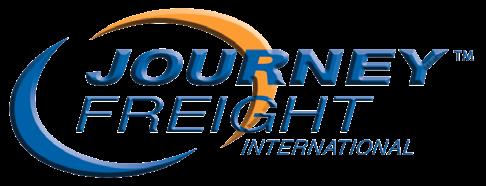





RUTH KABOGO, FEDEX EXPRESS








It is always a pleasure. I love how the arrangement setting of the conference & booths is convenient
















It is always a pleasure. I love how the arrangement setting of the conference & booths is convenient

Welcome to the Pharma Logistics Africa (PLA2022) Post-Event Guide where on behalf of PNYX, I would like to take this opportunity to sincerely thank all those who participated in this important forum. The PLA series serves to promote discussion and capacity strengthening solutions, to address the opportunities and challenges across the pharmaceutical, logistics, and health spectrum through public-private partnerships (PPPs). This report contains a summary of the various workshops, panel discussions, keynote addresses, exhibition booths, networking, and 1-2-1 matchmaking meetings that took place at PLA2022
PNYX would like to pass on its sincere gratitude to PLA2022 Conference Chair, Dr. Girum Hailu Maheteme, Senior Advisor and Regional Coordinator for COVID Response, of IGAD’s Health & Social Development Division, for his expert guidance and chairmanship across the two days in Nairobi. Additionally, we owe great thanks to Dr. Anastasia Nyalita, CEO of the Kenya Healthcare Federation (KHF), and Dr. Omar Najim, Chief Advisor and Director of Special Programmes, of the Department of Health, Abu Dhabi, and the HOPE Consortium for their valuable support and ongoing commitment to PLA. I would also like to thank all our PLA2022 participating distinguished guests, honorable ministers, and participants from leading international and regional organizations, non-governmental organizations, and health experts, who participated in the discussions and were committed to meeting with private-sector delegates throughout afternoon 1-2-1 matchmaking meeting session.
Although in its 4th year, PLA2022 represented just our second in-person event since 2019, proving to be a great success, bringing likeminded officials and private-sector delegates together from across the globe; testimonials of which can be found later in this guide. We welcomed almost 250 African and international participants for high-level plenary sessions, keynote speeches, private 1-2-1 matchmaking meetings, and a range of networking & social functions, all convening to address the opportunities and challenges that Africa faces across the pharmaceutical, logistics, and health sectors, thus strengthening the continent’s economic autonomy and long-term sustainable development under the COVID-19 pandemic and beyond. We were once again thrilled to introduce a pre-event day featuring an IFRC Logistics Supplier Workshop, ‘Doing Business with the UN’ Workshop, and a USAID Funding Workshop. We thank all these institutions sincerely for supporting the PLA series and PNYX’s ethos of personable engagement; long-standing collaborations are sure to result and ultimately, a stronger ‘Hub’ of actors.
PNYX would like to thank the Radisson Blu Nairobi Upper Hill staff for its fantastic support across the few days. We thank all our local partners/suppliers for helping us to produce world-class materials such as the stage set, banners, invitations, and tickets, and of course the Official Event Guide; in addition to the local students who assisted with managing our registration desk and afternoon matchmaking meeting tables. Lastly and by no means least, PNYX would truly like to thank our PLA Sponsors and delegates for their support and attendance without which, events of this magnitude and importance would simply not be possible. The support shown by our partners and sponsors was emphatic and a true testament to the potential they see for development across Africa.
Thank you for joining us in Nairobi, we look forward to welcoming you in 2023!.
BENJAMIN HARDY Director | PNYX Ltd




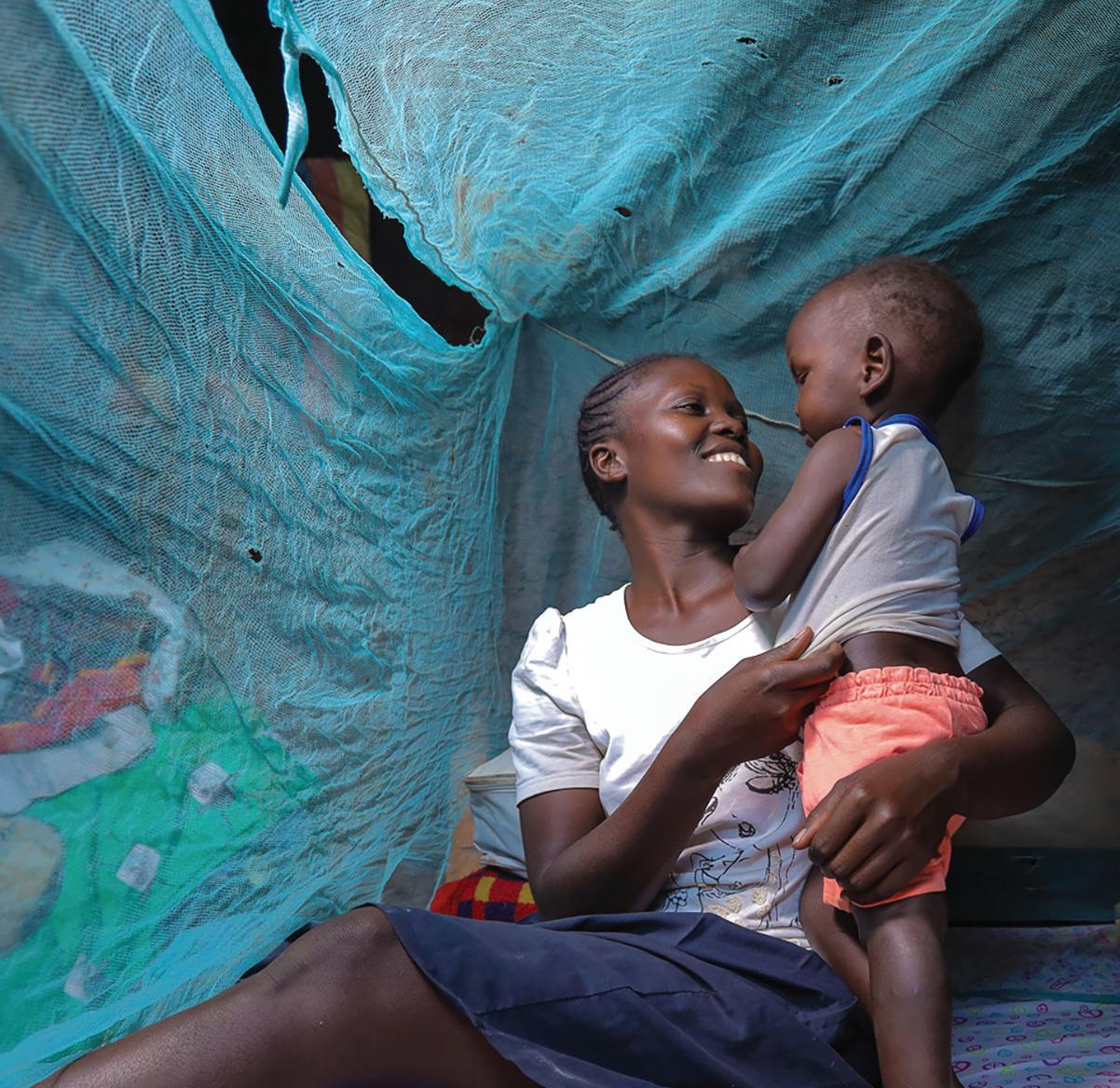
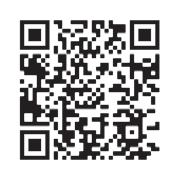
Distinguished Delegates from Member States in Africa;
Distinguished Regulators from Member States of Africa;

Distinguished Delegates legates from International, National and Regional organizations; Distinguished Delegates from the host country Kenya; Distinguished Delegates from International companies operating in the region, the continent, and the globe;
Distinguished Delegates and experts from all over the continent and the world; Distinguished Members of the organizing team;
It gave me great pleasure to be at the closing Ceremony of the PLA2022 historic event. We had a wonderful time and occasion: Great opening, wonderful Panels, Community Engagement, Exhibitions, We need to continue the good practice through improved approach:
• Engagement of the member states in Africa through AUC and Regional bodies platform
• Representation from all RECs and UN Agencies
• Donor Community in the region, Africa, and the world
Important results and emphasis given to:
• Local Manufacturing through ratification of AMA in Africa
• Engagement of the Community in all interventions
• Adequate health care financing
• Member states engagement for sustainability

• Utilize our retail pharmacies and the experts
More importantly: Quality, Quality, Quality!!! Collaboration, Collaboration, Collaboration!!!
Finally, on behalf of Excellency the Executive Secretary of IGAD and the entire team, allow me to thank all of you for your great contribution and support.

I would like to thank all Chairs and Panelists, Members of the organizing team.
I would like to thank all Sponsors, Partners and Support team for their support and assistance.
I thank the host country: the people and government of Kenya.
With best regards

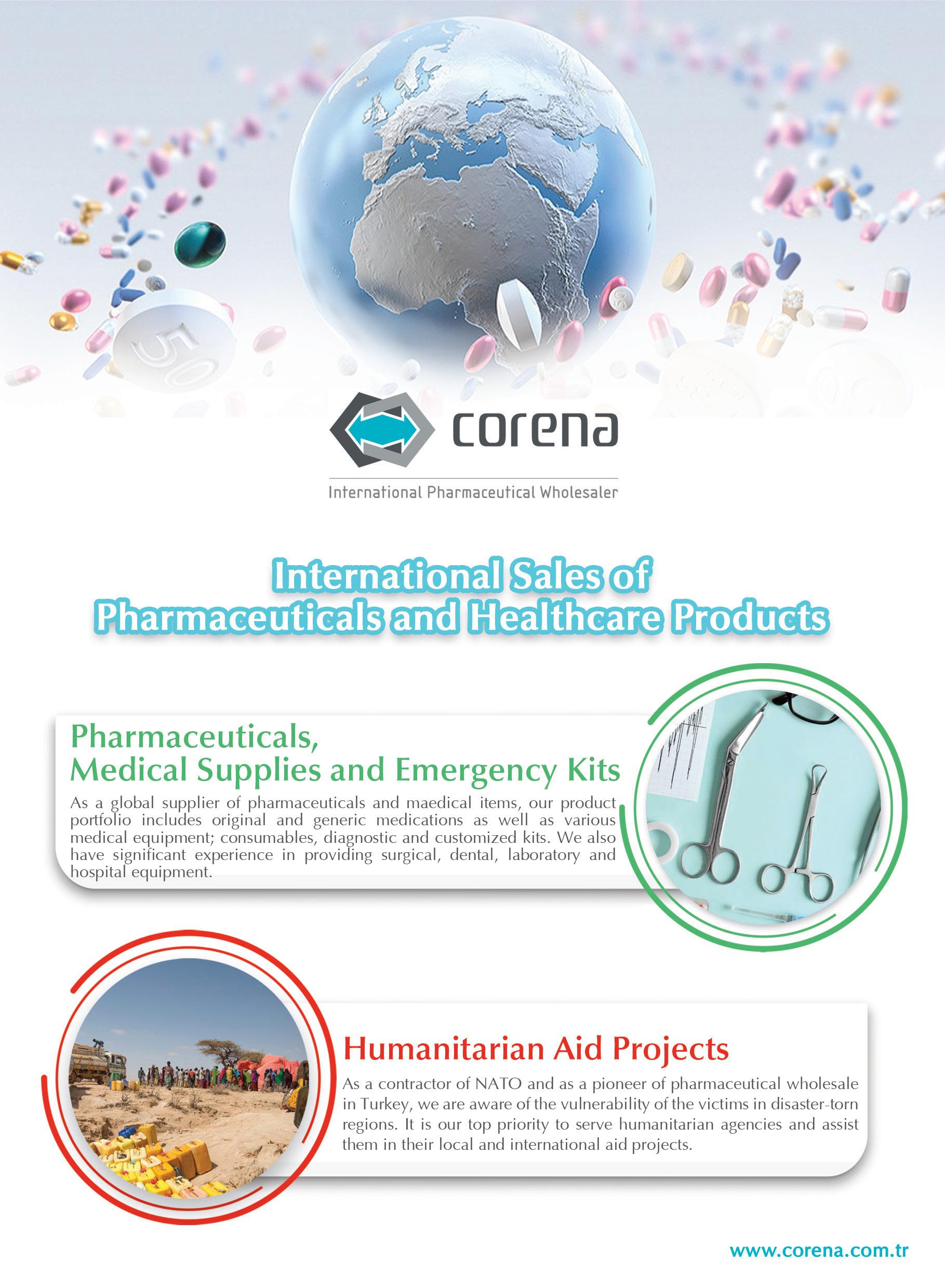

While every effort has been made to ensure all details are correct at the time of publication, there may be late additions or changes to the participants. Whilst every effort is made to ensure accuracy, the organisers and publishers cannot take responsibility for losses resulting from publishing errors, however caused. All editorials published as submitted. All rights reserved. No part of this official guide may be reproduced or transmitted in any form or by any means electronic or mechanical, including photocopying, recording, or by any means of information storage and retrieval systems without prior permission in writing from copyright owners. Multiple copying of the contents of this publication without prior approval is not permitted.

PNYX was was particularly delighted to host the4th edition of Pharma Logistics Africa (PLA2022), held on 12-13 October 2022 at the Radisson Blu Nairobi Upper Hill Hotel, Kenya, it having been 2019 since our previous in-person PLA event (2020 and 2021 being virtual). In our continued efforts to facilitate growing collaboration across the region, PNYX welcomed almost 250 participants from Government which included Ministries of Health, Food and Drugs Authorities, the Nigeria Centre for Disease Control (NCDC), IGAD Health & Social Development Division alongside UN agencies such as UNOPS, UNPD, UNICEF and organisations such as Amref Health, the African Union - Africa CDC, USAID, World Vision, IOM, Médécins Sans Frontières, PATH, PanAfricare and many more, for a busy few days of workshops, high-level plenary sessions, keynote speeches, workshops, networking, and afternoon 1-2-1 matchmaking meetings, all discussing lessons learned, current challenges and future priorities across the pharmaceutical, health, and logistics spectrum on the African continent.


Pharma Logistics Africa (PLA2022) commenced with three pre-event workshops. The first was an IFRC Logistics Supplier Workshop hosted by Rishi Ramrakha, Head of the Regional Logistics Unit - Africa within Global Humanitarian Services & Supply Chain Management, at IFRC - the International Federation of Red Cross and Red Crescent Societies, where delegates and sponsors could find out more about how to become a supplier of IFRC, and their procurement, contracting, and purchasing processes. The second was a Doing Business with the UN Workshop given by two representatives of the United Nations Secretariat Procurement Division (UNPD), Tigabu Adane Ayele, Procurement Officer & Team Leader - Uganda, and Muhammed Riad Islam, Procurement Officer & Healthcare Team Leader. Together they presented fundamentals on doing business with the UN in terms of procurement, areas of operation and types of goods & services, statistics, and challenges in peacekeeping procurement. The third of the day was a USAID Funding Workshop conducted virtually by Rachel Chilton, Deputy Director of Communications within the Office of Acquisition & Assistance, USAID who presented how to work with the U.S. Agency for International Development, the Agency’s
operations by giving tips for submitting proposals and funding opportunities etc. The pre-event day concluded with delegates convening at the Radisson’s Humidor Bar & Lounge for an ‘ice-breaker’ Networking Reception in a relaxed and informal setting, whilst enjoying a range of canapés and refreshments. Sponsors were able to setup their exhibition stands whilst Panel Chairs were able to engage their fellow panellists ahead of the two days of discussions to follow.
Day one of PLA2022 began with an Opening Ceremony offering remarks from Benjamin Hardy, Director of PNYX Ltd, PLA2022’s Official Conference Chair Dr. Girum Hailu Maheteme, Senior Advisor at IGAD’s Health & Social Development Division and Regional Coordinator for COVID-19 Response, and Dr. Anastasia Nyalita, CEO of the Kenya Healthcare Federation (KHF). They all highlighted the importance of PLA2022 as a great opportunity to interact, share experience and best practices, network and get to know one another for effective partnerships. Following was an Opening Keynote Address, given remotely by Dr. Omar Najim, Chief Advisor & Director of Special Programmes at the Department of Health, Abu Dhabi, and the HOPE Consortium. Dr. Najim spoke about response and the challenges faced from a supply chain perspective, and the community, during the pandemic and about Hope Consortium’s work which enables safe and effective vaccination programmes in partnership with the Department of Health - Abu Dhabi, Abu Dhabi Ports, Etihad Cargo, Rafed, Maqta Gateway and SkyCell. He also highlighted Hope Consortium’s large effort towards collaboration especially on the Africa Continent.
“THE PLA2022 EVENT OFFERS A GREAT OPPORTUNITY TO INTERACT, SHARE BEST PRACTICES, NETWORK AND KNOW ONE ANOTHER ENABLING MECHANISMS FOR EFFECTIVE PARTNERSHIP”PLA2022 Opening keynote address Dr. Omar Najim
Looking at the discussion panels, of which there were six across the two days, each featuring live Q&A, Panel One, chaired by Dr. Amit N Thakker, President of the Africa Healthcare Federation, tackled Re-thinking Africa’s Pharmaceutical Sector - Lessons Learned from COVID-19. Panelists emphasized that collaborators, stakeholders, and key players in Ministries of Health, NGOs, Regulators, Manufacturers must all understand the same language to work together in supply chain and also encourage companies to produce vaccines in Africa. Panelists also noted lessons learned from COVID in terms of understanding the role of pharmacists which are often underutilized partners in Africa’s health systems, stressing how pharmacists within the African continent are all professionally trained; however, they need to be empowered. This opening Panel was followed by a Spotlight Presentation - Ethiopian Airlines, the first African IATA CEIV Pharma Certified Airline, which was given Bisrat G. Mariyam, Head of Pharmaceuticals & Life Science Logistics, Ethiopian Cargo & Logistics Services providing an overview of the services provided by the Ethiopian Pharma Cargo Wing.

PLA2022

PLA2022
Following a brief Networking Tea & Coffee Break, providing an opportunity to explore the various exhibition stands, Panel Two on Improving Pharmaceutical Supply Chain Sustainability and Transparency in Africa: New Technologies & Innovation was chaired by Setota Keabetswe Ramoshebi, Commercial Operations & Distributor Excellence Leader - Africa of BD. Panellists discussed the importance of leveraging technology and innovation to innovate and elevate supply chain systems. This can be done through the harmonization of supply chain and regulatory process for easier movement of goods between countries. They also highlighted the significance of having a digital strategy and transformation within public

After an informative morning of panel discussions and presentations, delegates enjoyed a delightful Networking Lunch Break, continuing discussions ahead of the afternoon 1-2-1 PLA Public-Private Sector Matchmaking Meetings. In the weeks leading up to the event, delegates were able to identify their preferred matchmaking meetings from the delegation of PLA2022 officials, through PNYX ‘s secure scheduling website. Pre-event, meeting schedules were finalized and confirmed to all participants to maximize potential outcomes of our personable format of 15-minute matchmaking meetings. Wednesday afternoon featured hundreds of one-toone meetings with many organizations taking back-to-back appointments throughout. Participants were quick to identify their value and praise their efficiency.
Finally, to wrap-up day one, PNYX wanted to ensure all PLA2022 participants had the opportunity to enjoy Nairobi’s hospitality and were treated to an Event Dinner in a relaxed and enjoyable setting, at the renowned Carnivore Restaurant. Generously sponsored by the HOPE Consortium, participants were able to experience an extensive range of delicious barbeque
food, whilst enjoying the outdoor ambience and local Kenyan entertainment/dancing.
“COUNTRIES IN THE REGION NEED TO HARMONIZE PRODUCT REGULATORY PROCESS THAT ALLOWS FOR EASIER MOVEMENT OF GOODS BETWEEN COUNTRIES”
“DIGITAL STRATEGY AND TRANSFORMATION WITHIN PUBLIC SECTOR ARE VERY IMPORTANT TO SCALE SOME SOLUTIONS”
“COLLABORATORS, STAKEHOLDERS, AND KEY PLAYERS IN THE SUPPLY CHAIN ALL NEED TO UNDERSTAND THE SAME LANGUAGE IN ORDER TO SPEAK ABOUT THE SAME THING”
“REGULATIONS SERVE AS IMPORTANT BUILDING BLOCKS, AND IT IS IMPORTANT TO ACT NOW”
“WE MUST PROVIDE CAPACITY TO THE LOCAL INDUSTRIES TO ENHANCE SKILLED QUALIFIED PERSONNEL WHICH CAN HANDLE AT LEAST THE BASIC ESSENTIAL MEDICINES PRODUCTIONS IN THE REGION”PLA2022 Opening comments. Conference Chair, Dr. Girum Hailu Maheteme PLA2022 Welcoming Address. Dr. Anastasia Nyalita

PLA2022’s Conference Chair Dr. Girum Hailu Maheteme of IGAD, returned to the stage in the Mount Kilimanjaro Ballroom for Day Two’s Welcoming Remarks, offering a brief summary of day one’s key discussion points whilst picking out a few of those that lie ahead for Thursday. Day two started with a Spotlight Address from Titus Munene M’Maeti, Ag. Project Director at the Mission for Essential Drugs & Supplies (MEDS). Mr. M’Maeti spoke about the challenges in essential medicines in terms of supply chain disruptions, storage, logistical barriers, and shortages during the COVID-19 lockdowns, as well as the work that MEDS continues to carryout. He also offered solutions such as creating a platform for open information sharing thus reducing issues like stockpiling.

Chaired by Dr. Winnie Nganga, Chairperson of the Kenya Association of Pharmaceutical Industry (KAPI) and Regulatory Affairs Director at GSK, Panel Three looked at Africa’s Legal and Regulatory Environment - what it means to have a good African regulatory and stable health system that can support its own domestic manufacturing. Panelists highlighted how crucial it is for Africa to harmonize all its activities to guarantee a strong and legal regulatory system, whilst creating an attractive environment for investors. Speakers stated that this can done through streamlining regulatory processes, by looking into local governments, regional agencies, and manufacturers which can ensure an operating system through a harmonized regulatory systems and channels. Panel three was followed by a Spotlight Session: PATH Understanding Market Dynamics of Maternal, Newborn, Child Health (MNCH) Medical Devices in Kenya given jointly by Helen Kamau, Market Dynamics Officer, and Andolo Miheso, TMICI Project lead-KENYA of PATH. Both speakers provided insights and opportunities for policymaking in terms of funding, medical education training, maintenance, infrastructure development, lack of data etc.
Following a Networking Tea & Coffee Break, Panel Four on Building Resilient Public Health Systems & Stronger Pandemic Preparedness and Emergency Response to Public Health Emergencies in Africa was chaired by Dr. Anastasia Nyalita, CEO of the Kenya Healthcare Federation (KHF). The panel stressed on the need to speak with one voice, collaborate beyond health, and the importance of global standardization. Going forward, this will allow actors to be better prepared to contain and prevent pandemics and emergencies. Panel 5 Understanding Community-Level Responses to Public Health Emergencies highlighted the important role of the community and health workers in their responses during covid. However, speakers highlighted that often the community lack the proper coordination, technology, and toolsets to reach an adequate level of readiness. As coordination is still not strong enough in Africa, it is important to equip the community with tools and harmonized datasets which can be used rapidly to be more efficient. Offering some time for reflection from the morning’s sessions, participants headed for a Networking Lunch Break before the remaining spotlight addresses and panel discussions of PLA2022.
“WE MUST LOOK INTO LOCAL GOVERNMENT AND MANUFACTURES IN ORDER TO DEVELOP A DOMESTIC PHARMACEUTICAL IN AFRICA AND IMPROVE AND MAINTAIN A HARMONIZED REGULATORY SYSTEM”
“FROM INDIVIDUAL COUNTRIES TO REGIONAL BLOCKS AND NOW WE HAVE A CONTINENTAL BODY TO DO REGIONAL HARMONIZATION”
PLA2022
The afternoon continued with a Spotlight Address –PharmAccess given by Mac-Thompson Gbeti, Brand Ambassador of the PharmAccess Foundation, on using a digital supply chain platform to curb the inefficiencies in medicine procurement. And finally, Panel 6 on Management & Distribution of Vaccine & Medical Products to and within Africa, chaired by Vinod Guptan, Board Director & Chairman of the Supply Chain Committee at the Kenya Healthcare Federation (KHF), discussed last mile delivery to ensure a harmonized supply chain, and the readiness to work together. Speakers noted the importance of systems coupled with technology can ensure that patients get product in their last mile.
Day two, and the 4th Pharma Logistics Africa (PLA2022) forum, drew to a close with some final words from 2022’s Official Conference Chair Dr. Girum Hailu Maheteme, Senior Advisor at IGAD’s Health & Social Development Division and Regional Coordinator for COVID-19 Response, offering a generous thank you to all the participants for their commitment and willingness to challenge their ideas, and form a better understanding of the challenges effecting the pharmaceutical logistics health sphere in Africa, in an effective collaborative manner. PNYX Director, Benjamin Hardy shared his sincere appreciation with all the speakers and panelists for their presentations and dialogue, and for their time and commitment, not only to the forum itself but especially to the afternoon 1-2-1 matchmaking meetings. Additionally, he expressed his thanks to the local Kenyan suppliers for all the event materials, their excellent simultaneous translation work and general support, and to the staff of the Raddison Hotel for their professionalism. Lastly, and by no means least, Benjamin offered his sincere thanks to the valuable Sponsors of PLA2022, for their investment in making yet another great event possible. To conclude, all participants were encouraged to continue their discussions and new-found partnerships beyond the forum, to bring forth the change suggested throughout the event and hopefully return next year with great news of the progress made through their collaborations.




Safe travels to everyone and we look forward to welcoming you at the 5th Pharma Logistics Africa forum in 2023!

n
“SYSTEMS COUPLED WITH TECHNOLOGY CAN ENSURE THAT PATIENTS GET PRODUCT IN THEIR LAST MILE”
“THERE MUST BE READINESS TO WORK TOGETHER TO ENSURE SUPPLY CHAIN AND LAST MILE DELIVERY”
“HOW CAN WE BETTER PREPARE, BETTER CONTAIN AND PREVENT? PREPAREDNESS IS A MUST BETWEEN PANDEMICS”
“WE NEED TO COLLABORATE BEYOND HEALTH AND SPEAK WITH ONE VOICE”
“COORDINATION IN AFRICA IS NOT VERY STRONG. WE MUST IMPROVE THAT COORDINATION”


13:30-19:00 PLA2022
14:45 - 15:30
Participants may complete registration by collecting their delegate pack & event access pass in the Radisson Blu Hotel, Nairobi Upper Hill (business card required). PNYX’s registration desk will remain open all day for those attending the afternoon workshops, whilst Sponsors also setup their exhibition stands.
The International Federation of Red Cross and Red Crescent Societies (IFRC) Africa Regional Office will host a dedicated workshop open to all PLA2022 delegates and sponsors looking to find out more about how to become a supplier for the IFRC. Attendees will learn who IFRC are and what they procure and contract. There will be a presentation of their online item catalogue, who is purchasing in the IFRC, their Regional Logistics Units, and the process to become a registered supplier including how to obtain tender documents whilst sharing valuable contact details.

Rishi Ramrakha, Head of Regional logistics unit, Africa of Global Humanitarian Services & Supply Chain Management, IFRC - International Federation of Red Cross and Red Crescent Societies
15:30 - 16:15

The United Nations Secretariat Procurement Division’s (UNPD) will host an open session for all PLA2022 delegates, presenting fundamentals on doing business with the UN. This session will look at the principles of UN procurement, the UN system, areas of operation and types of goods & services, statistics, and challenges in peacekeeping procurement. This workshop will be very informative for those wishing to learn more about UN procurement, and will also feature a Q&A session, an excellent opportunity to ask any questions to aid your UN procurement efforts.
Tigabu Adane Ayele, Procurement officer/ Team leader of UNPD - United Nations Procurement Division
Muhammed (Riad) Islam, Procurement Officer (Team Leader Healthcare Team) of UNPD - United Nations Procurement Division
16:15 - 17:00

Join USAID’s Management Bureau from Washington D.C. for a discussion on how to work with the U.S. Agency for International Development. You will learn about the Agency’s operations, key terms you need to know, tips for submitting proposals, how to find funding opportunities and much more! You will also have an opportunity to ask questions of USAID staff.
Rachel Chilton (virtual), Deputy Director of Communications of Office of Acquisition & Assistance, USAID - U.S. Agency for International Development

19:00 - 21:00
PLA2022 delegates meet for an ‘ice-breaker’ Networking Reception to discuss the two days ahead in a relaxed and informal setting, whilst enjoying a range of canapés and refreshments. Also an ideal opportunity for Panel Chairs to connect with their fellow panellists.
• 12-13
UPPER HILL, NAIROBI, KENYA

Wednesday 12 October • Mount Kilimanjaro Ballroom, Radisson Blu Hotel
8:30 - 8:50
NETWORKING REGISTRATION
PLA2022 delegates may complete registration by collecting their delegate pack & event access pass whilst networking and enjoying tea & coffee (business card required).
• RADISSON BLU HOTEL NAIROBI
8:50 - 9:15
CONFERENCE CHAIR
9:15 - 9:25
Benjamin Hardy, Director of PNYX Ltd
Dr. Girum Hailu Maheteme, Senior Advisor, IGAD Health and Social Development and Regional Coordinator for COVID Response of IGAD Health & Social Development Division
Dr. Anastasia Nyalita, CEO of Kenya Healthcare Federation (KHF)

OPENING KEYNOTE ADDRESS
Dr. Omar Najim (virtual), Chief Advisor and Director of Special Programme of Department of Health, Abu Dhabi, HOPE Consortium
9:25 - 10:25
PANEL 1: RE-THINKING AFRICA’S PHARMACEUTICAL SECTORLESSONS LEARNED FROM COVID-19
The scarcity of pharmaceuticals in Africa has been a problem for decades. With so few manufacturers, Africa relies largely on imports to keep its population healthy. The dependence on imported pharmaceuticals has left populations across the continent vulnerable to shortages of medication. Africa’s lack of essential medicines and active pharmaceutical ingredients during the pandemic had implications on the pharma and health sector over and above the direct effects of COVID-19. The COVID-19 pandemic has undermined recent progress on access to HIV, malaria, and tuberculosis medicines as well as to reproductive, maternal, and newborn treatments and medicines. For that reason, several components are needed to establish an environment to produce a local mature pharmaceutical industry, scale up production, and attract investors. Panelists will discuss ways of rethinking the continent’s pharma sector as a contributor to prosperity, improving health care and driving economic growth. This involves partnering with local and international pharmaceutical companies to co-create projects, identify technical partners, and develop commercially viable projects and financing structure. Both public and private stakeholders have a role to play in these critical steps required.
Panel Chair: Dr. Amit N Thakker, President of Africa Healthcare Federation

Bridget Barnard, Supply Chain Director of Pfizer Laboratories
Nuran Idris, Healthcare Manager, Africa of GS1 Global Office
Prof. (Dr.) Shital Maru, Associate Professor of Pharmacy of University of Nairobi

Dr. Lucas Kimanga Nyabero, CEO of Pharmaceutical Society of Kenya
Dr. Nelly Kimani, Quality Assurance Pharmacist of Centrale Humanitaire Medico-Pharmaceutique (CHMP - Kenya)
Bisrat G. Mariyam, Head of Pharmaceuticals & Life Science Logistics Ethiopian Cargo & Logistics Services
11:05 - 12:05
“The engagement and the networking are on the highest level. Very educational and insightful sessions all around”
11:55 - 12:05
12:05 - 13:30
13:30 - 15:30

Africa’s pharmaceutical market is fragmented with small pharmacies, which are prevalent, operating in a large market where demand is uncertain, and supply is constrained. This fragmentation makes it difficult for the sole operating pharmacies to get access to products at the right prices. Local challenges in remote and difficult to reach areas call for local solutions within the supply chain such as partnerships amongst cold chain handlers to ensure last-mile delivery of vaccines to end-users, while in acceptable controlled conditions. The availability of experienced facilities along supply-chain routes with scalable facilities also remains a challenge and can limit the supply of vaccines. Nonetheless, digitalization has fostered instant communication and helped facilitate speedy research, development, and distribution of essential medicines and vaccines, demonstrating its importance to future pharma. Africa has a unique opportunity to utilize these advancements in technology and leapfrog the current infrastructure gaps affecting its pharmaceutical value chain to positively impact health outcomes on the continent. Panelists will discuss how to achieve supply chain sustainability and transparency in Africa by providing examples of key solutions, innovations, and new technologies that can drive towards a more sustainable pharma supply chain.
Panel Chair: Setota Keabetswe Ramoshebi, Commercial Operations & Distributor
Excellence Leader - Africa of BD

Edward Kufwafwa, Pharmacy Assistant, Regional Vaccination Programme of IOMInternational Organization for Migration Seru Morries, Acting Commissioner Pharmaceutical Services of Uganda Ministry of Health
Azuka Okeke (virtual), CEO of African Resource Center for Excellence in Supply Chain Management Fabrice Panza (virtual), Manager Global Cool Chain Solutions of Etihad Cargo Joshua Muriithi, Ecosystem Enabler of Roche Kenya Limited
AUDIENCE DISCUSSION; QUESTION & ANSWER SESSION
NETWORKING LUNCH BREAK
PLA PUBLIC-PRIVATE SECTOR MATCHMAKING
Afternoon sessions dedicated to introductory 15-minute 1-2-1 matchmaking meetings between Government, NGOs, U.S., UN & International Agency stakeholders, and attending local, regional & global private-sector specialists. Personalised schedules are prearranged to provide a unique opportunity to share, network, and develop partnerships that will not only strengthen regional and international cooperation but also, further the continent’s health efforts and long-term wellbeing of its citizens.
15:30 - 16:00
16:00 - 18:00
19:00-19:30
NETWORKING TEA & COFFEE BREAK
PLA PUBLIC-PRIVATE SECTOR MATCHMAKING MEETINGS CONT.
EVENT DINNER - TRANSPORT
For those that require it, transport is included with an PLA2022 Event Dinner Ticket (please confirm at the on-site registration desk). Transport will depart from the Radisson Blu Hotel Lobby (Nairobi Upper Hill) at 7:00pm for a 7:30pm start, returning back to the Hotel at approx. 10:30pm.
19:30-22:30
EVENT DINNER - CARNIVORE RESTAURANT
Sponsored by the HOPE Consortium, PLA2022 delegates are invited to an informal Event Dinner at the renowned Carnivore Restaurant, to experience the food, ambience and entertainment Nairobi has to offer. A relaxed and fun evening with colleagues, to continue discussions from day one. For more information, please contact a member of the PNYX team.
• 12-13
UPPER HILL, NAIROBI, KENYA
Thursday 13 October • Mount Kilimanjaro Ballroom, Radisson Blu Hotel
8:30 - 9:00
If not done so already, PLA2022 delegates may complete registration by collecting their delegate pack & event access pass whilst networking and enjoying tea & coffee (business card required).
• RADISSON BLU HOTEL NAIROBI
9:00 - 9:05
CONFERENCE CHAIR
9:05 - 9:15
9:15 - 10:15
Dr. Girum Hailu Maheteme, Senior Advisor, IGAD Health and Social Development and Regional Coordinator for COVID Response, IGAD Health & Social Development Division
Titus Munene M’Maeti, Ag. Project Director, Mission for Essential Drugs & Supplies (MEDS)
PANEL

Regulatory reform is essential to progress in the pharma space. In addition to contributing to more stable health systems and supporting a domestic manufacturing sector that addresses issues of access and affordability, a stable regulatory environment can also attract long-term financial support. Regulatory standards are key to attracting investors as they demonstrate regulation, verification, and certification which provide that certainty. In Africa, however, the lack of organized distribution systems forces health care providers to rely on open drug markets and unlicensed drug traders, making patients susceptible to counterfeit and substandard products. This session will look at the role that local regulatory authorities and bodies play to streamline regulatory processes. Panelists will discuss how local governments, manufactures but also multilateral organizations can support the development of domestic pharma operations in Africa by helping to determine which nations and regions can share capacity to produce medication. They will also examine examples to improve and maintain a harmonized regulatory system by increasing investment into local production in Africa, coordinating supply chain and manufacturing for medical product, and developing resources both for buying and development of vaccines to guarantee an operational market design and procurement system.
Panel Chair: Dr. Winnie Nganga, Chairperson , KAPI . Regulatory Affairs Director GSK of Kenya Association of Pharmaceutical Industry (KAPI)
Dr. Emmanuel Agogo (virtual), Country Representative - Nigeria of RTSL (Resolve to Save Lives)
Dr. Akua Amartey, Deputy Chief Executive Officer, Technical Operations of Food and Drugs Authority - Ghana
Rishi Ramrakha, Head of Unit - Africa Region of Global Humanitarian Services & Supply Chain Management, IFRC - International Federation of Red Cross and Red Crescent Societies
10:05 - 10:15 AUDIENCE DISCUSSION; QUESTION & ANSWER SESSION

10:15 - 10:45 SPOTLIGHT SESSION: PATH UNDERSTANDING MARKET DYNAMICS OF MATERNAL, NEWBORN, CHILD HEALTH (MNCH) MEDICAL DEVICES IN KENYA
Helen Kamau, Market Dynamics Officer of PATH and Andolo Miheso, Project lead - Technical Advisor of PATH
10:40 - 10:45 AUDIENCE DISCUSSION; QUESTION & ANSWER SESSION
10:45 - 11:25
NETWORKING TEA & COFFEE BREAK
11:25 - 12:25

12:15 - 12:25
12:25 - 13:25
The COVID-19 pandemic has overwhelmed health systems in both developed and developing nations alike with Africa having one of the weakest health systems globally. Health systems in Africa were inadequately prepared for the pandemic, and its impact was substantial. Insufficient access to vaccines, medicines and technologies, and weak health systems have hindered the realization of the right to health of all Africans during the pandemic. In addition, fiscal constraints, and unsustainable debt burdens are hindering the path to recovery. Africa has also been left behind in the COVID-19 response, with less than 13% of people in Africa fully vaccinated against COVID-19 as of March 2022. As countries roll back strict measures against COVID-19, African countries and their public health stakeholders are starting to shift their attention. Vaccination continues to remain important, however the focus is moving on to longer-term testing and surveillance approaches that can be integrated into, and will strengthen, national health systems. New and robust funding mechanisms for HIV, health and pandemic preparedness must prioritize the local needs of African countries through special drawing rights reallocation, debt relief, new concessional sources and sustained/increased overseas development assistance (ODA). Partnerships with developed nations in collaboration with multilateral institutions is also required to support African institutions.
Panel Chair: Dr. Anastasia Nyalita, CEO of Kenya Healthcare Federation (KHF)

Dr. Chibuzo Eneh, Deputy Director (Head Supply Chain) of Nigeria Centre for Disease Control (NCDC)
Dr. Olukayode Fasominu, Senior Manager of UNICEF - UN Children’s Fund
Jackline Kiarie, Regional Program Manager of Amref Health Africa
Dr. Girum Hailu Maheteme, Senior Advisor, IGAD Health and Social Development and Regional Coordinator for COVID Response of IGAD Health & Social Development Division
AUDIENCE DISCUSSION; QUESTION & ANSWER SESSION
The pandemic has drawn attention to the need to strengthen the delivery of community-based health services. As the pandemic response now goes into a long-term phase, boosting community health services is critical to strengthening community resilience and community-level responses to public health emergencies. This includes providing testing support to African countries, helping with community mobilization, advocacy and scaling up of contact tracing as well as training community health workers. Panelists will discuss how community engagement at the local level has dealt with public heath emergencies by prevent and mitigating the spread of emergencies such as the COVID-19 pandemic before, during, and after the crises.
Panel Chair: Lilian Chebon, Program Officer Health of World Vision Kenya
Gorgui Diallo, CEO of PanAfricare
Ziwa Hillington, Strategist of Community Health and Information Network (CHAIN)
Dr. Catherine Kanari, Universal Health Coverage Lead of Amref Health Africa
13:15 - 13:25
13:25 - 14:40
AUDIENCE DISCUSSION; QUESTION & ANSWER SESSION
NETWORKING LUNCH BREAK


SPOTLIGHT ADDRESS - PHARMACCESS
Mac-Thompson Gbeti, Brand Ambassador of PharmAccess Foundation
“Great repository of knowledge and resource beneficial to the value chain in various supply chain modes”
• 12-13 OCTOBER
UPPER HILL, NAIROBI, KENYA
14:55 - 15:55
This panel will discuss how key stakeholders work together in moving health products across the African continent. Panelists will discuss the lessons learnt, solutions and areas of opportunities to overcome logistical challenges in terms of cold storage capacity, handling, and storing of vaccines to ensure a safe, secure, and resilient supply chain across the African continent.
Panel Chair: Vinod Guptan, Board Director & Chairman-Supply Chain Committee of Kenya Healthcare Federation (KHF)

Mohamedamin Abdullahi Ahmed, Head of Logistics of Somalia Federal Ministry of Health & Human Services
Gordon Brown, Logistics Manager of Chemonics International
Peter Otieno, CEO of GS1 Kenya
15:45 - 15:55 AUDIENCE DISCUSSION; QUESTION & ANSWER SESSION
15:55 - 16:15
RADISSON BLU HOTEL NAIROBI
CONFERENCE CHAIR We keep delivering. So life can move forward.

Dr. Girum Hailu Maheteme, Senior Advisor, IGAD Health and Social Development and Regional Coordinator for COVID Response of IGAD Health & Social Development Division Benjamin Hardy, Director of PNYX Ltd
We’ve kept you connected when the whole world was told to stay apart, because we know the value of being able to innovate, to collaborate and to grow.
At FedEx, we want you to always be looking to the future.



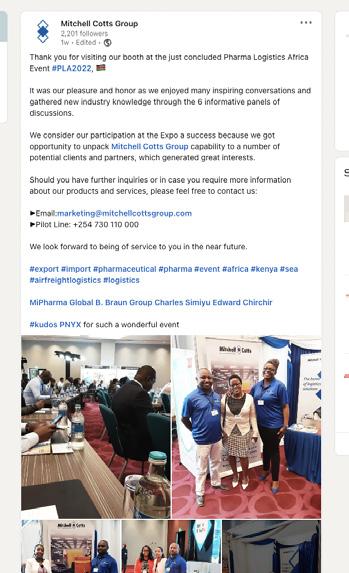

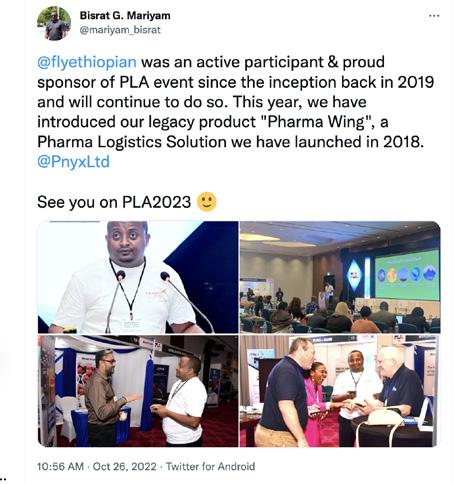
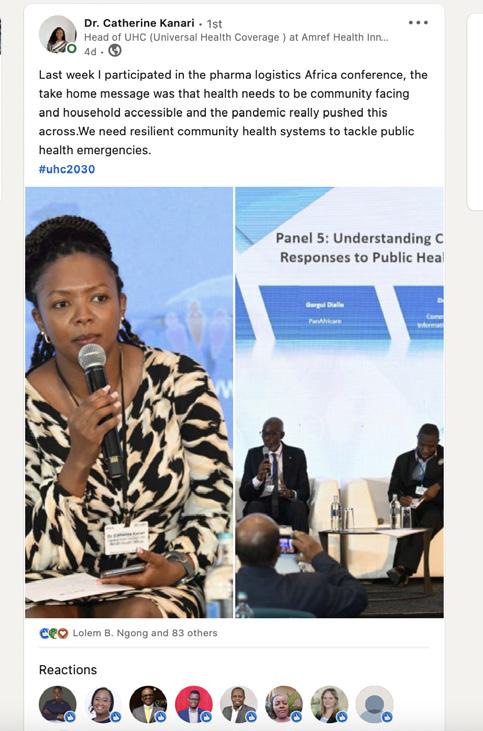
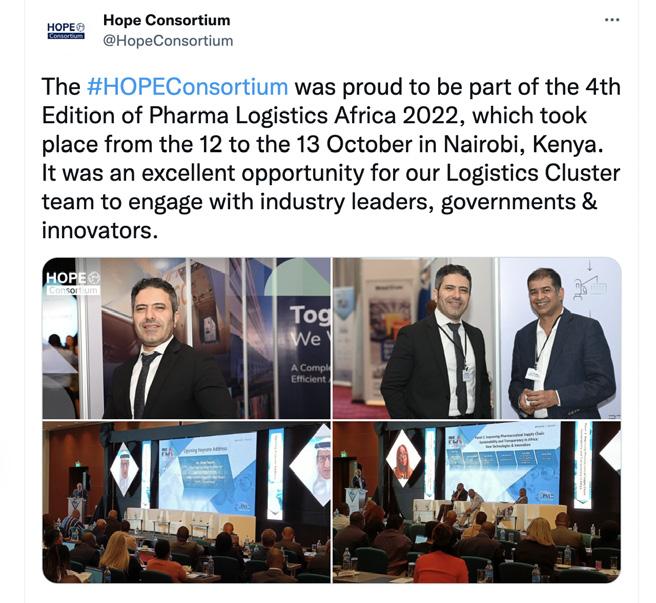
DR. GBENGA JOSEPH, NIGERIA CENTRE FOR DISEASE CONTROL (NCDC)


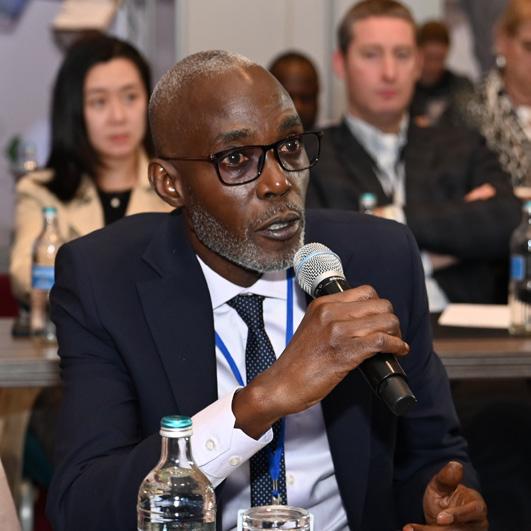
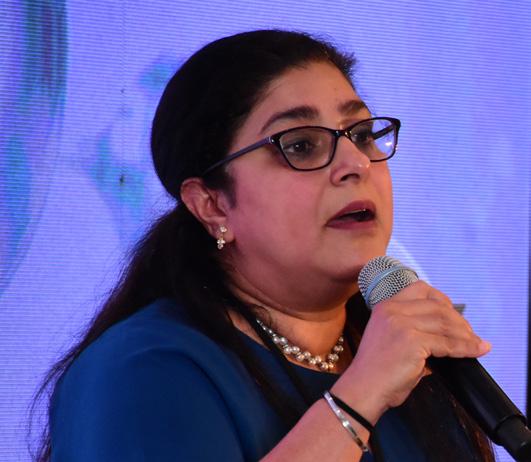




The meetings were well organised. Every section of meeting speaks toward achievement of the meeting objective to strengthen collaboration and partnership for effective efficient symbolic relationship. It will help my organisation to work with participants in service delivery.








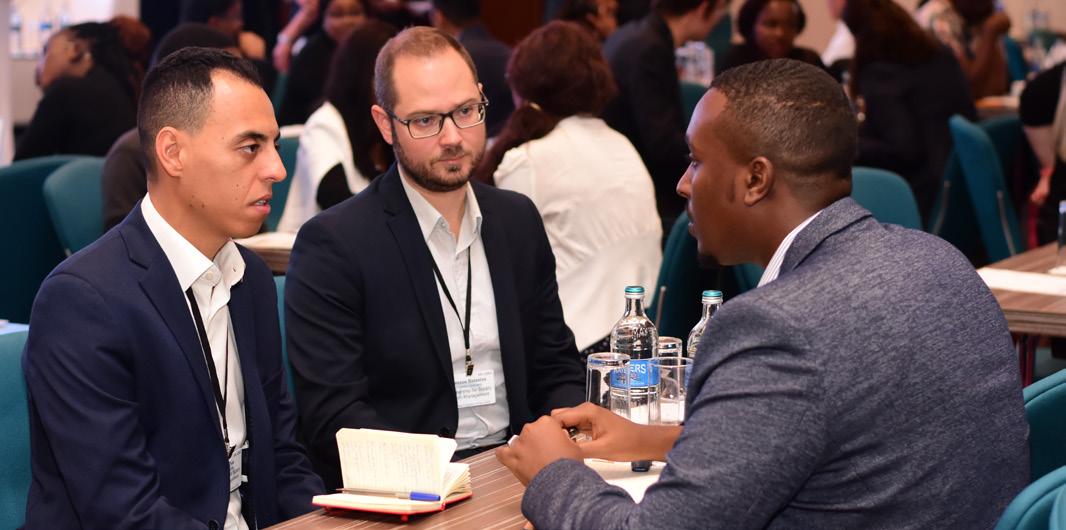
It was good to be back for the 4th year and in person. It was a positive experience as it has been in the past. Nothing better than face-to-face



Dr Ahmed Okba Director of Logistics – Healthcare and Life Sciences Logistics Cluster AD Ports Group

Comprising of six founding partners, including the Department of Health - Abu Dhabi, AD Ports Group, Etihad Cargo, Rafed, Maqta Gateway and SkyCell, the HOPE Consortium developed one of the world’s largest end-to-end cold chains capable of distributing millions of COVID-19 vaccines across all temperatures, from the point of production to the point of vaccination, anywhere around the world.
Leveraging Abu Dhabi’s geographical proximity to over 4.5 billion people and the global networks of its world-class partners, the HOPE Consortium has successfully delivered over 260 million vaccine doses to over 60 countries, many of which are in the African region. The deliveries were managed mostly via a hub & spoke model, which allowed the partnership to align its vaccine deliveries with the ability of the countries and communities it serves to absorb them safely. The deliveries were also backed by rapid on-ground deployment of medical staff and logistics specialists to ensure that doses could be administered quickly and efficiently.

successes of the partnership, Abu Dhabi’s logistical capabilities, connectivity, and strategic location offer unique advantages to global pharmaceutical and life sciences industry and the countries and communities that it serves. Specifically, with extensive investments across manufacturing, R&D and supply chain
logistics, the emirate is fast becoming a global life sciences and logistics destination of choice.
As a proud member of the HOPE Consortium, AD Ports Group has leveraged its KEZAD-based Healthcare and Life Sciences Hub to help companies in the sector manage their research, manufacturing, and logistics needs from one strategic location, while offering direct access to their customers via multi-modal transport links. These links include two major world-class ports, five international airports within a 90-minute driving distance, multi-lane cargo land corridor, and a future rail link.
Furthermore, the Hub includes internationally GDP & ISO-certified 19,000m2 ambient, cold and ultracold pharma warehousing facility, which is one of the largest of its type in the region. The complex, which houses the largest “Freezer Farm” in the UAE, can store over 120 million vaccines and other pharmaceuticals between the temperatures of -80°C and +25°C. It is part of a fully integrated end-to-end pharma and medical supply chain that is backed by an advanced fleet of over 400 vehicles and managed by blockchain-enabled technology that ensures pharmaceuticals are tracked and delivered to destination countries and communities safely, transparently, and on-time.
Beyond ultra-modern storage facilities, companies in the Hub have access to the world’s most comprehensive AI-powered National Genome Programme, a centralised bio-bank and gene sequencing, and a leading-edge health information exchange that connects hospitals, insurances, and other health systems. The Hub also brings together regulators, specialists, academia, and industry to foster a collaborative ecosystem that supports the growth of the global pharmaceutical and life sciences industry.
Bolstered by Abu Dhabi’s strategic location and purpose-built ecosystem, communities in Africa and around the world can expect better access to affordable and high-quality healthcare products, supported by world-class logistics solutions offered by AD Ports Group, the HOPE Consortium and its world-class partners. n



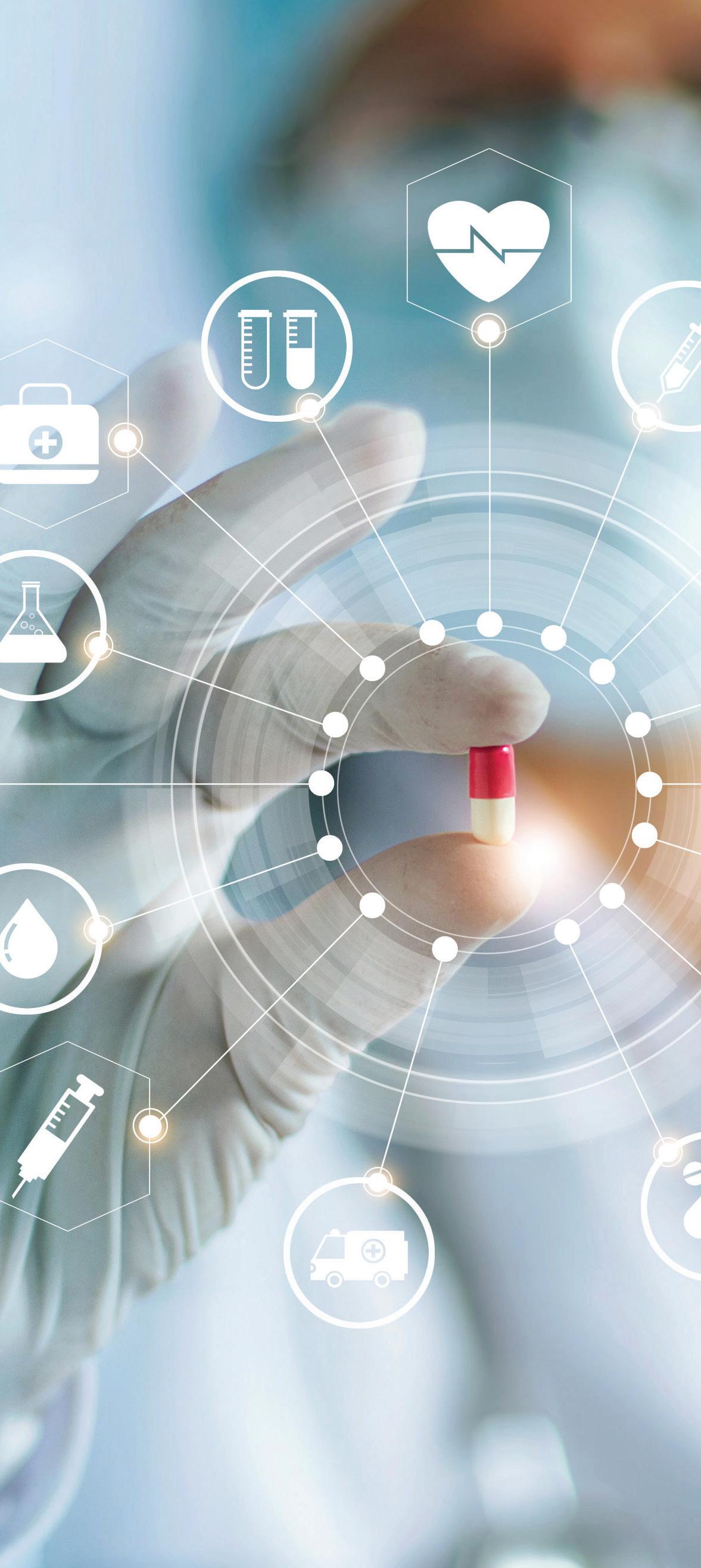

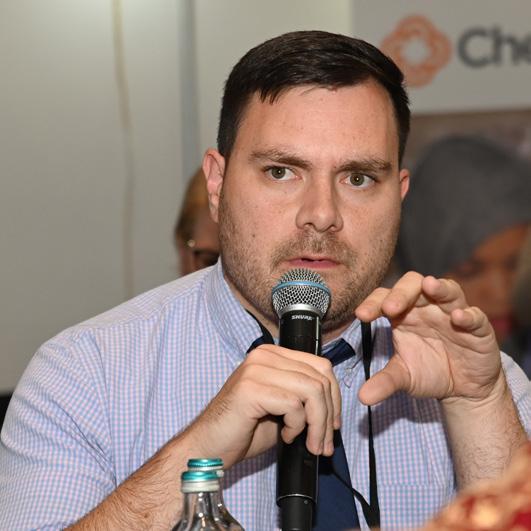





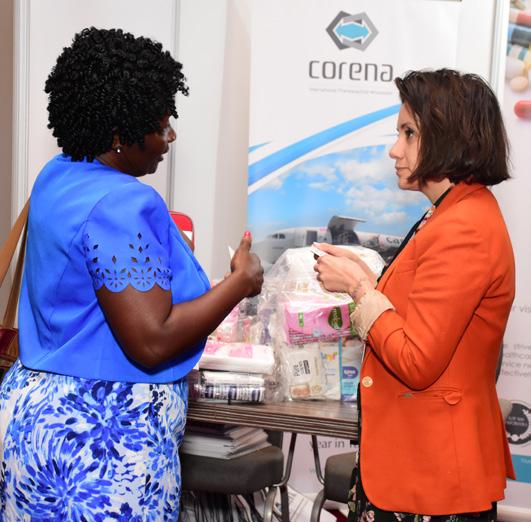
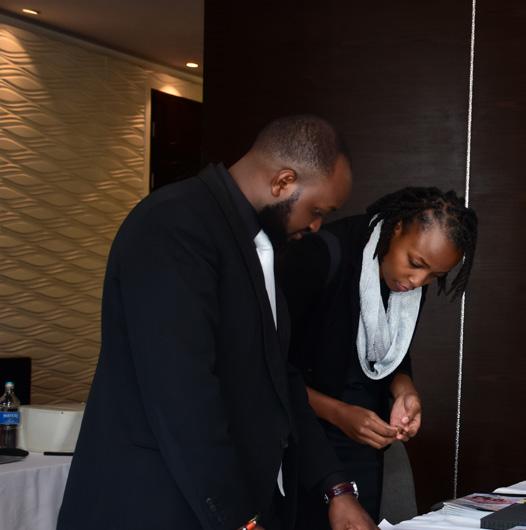

ETIHAD CARGO’S AWARD-WINNING PharmaLife product is dedicated to the safe transportation of pharmaceuticals around the world. In 2022, the carrier has continued to expand its pharmaceutical capabilities and increased PharmaLife revenue by 46 per cent. To meet the requirements for transporting dangerous goods in frozen and deep-frozen conditions, PharmaLife provides premium tailored solutions to handle temperature-controlled conditions from -80 to 25 degrees Celsius via the carrier’s portfolio of leased active and hybrid containers. Etihad Cargo also increased its dry ice capabilities, with its full freighters carrying up to 13 tonnes of dry ice, five times more than previously and one of the largest amounts of dry ice that airlines are permitted to carry. The carrier has also launched improved thermal covers that dramatically increase the protection of pharmaceutical cargo during aircraft loading and offloading.
Demonstrating its commitment to rigorous quality systems, Etihad Cargo achieved International Air Transport Association (IATA) Center of Excellence for Independent Validators (CEIV)Pharma certification for pharmaceutical and life science logistics in conjunction with its hub at Abu Dhabi International Airport and Etihad Airport Services in 2019. This certification proves the carrier’s full compliance with specific pharmaceutical regulations in terms of Good Distribution Practices (GDP), a quality system for warehouses and distribution centres dedicated to medicines.
To further enhance the carrier’s pharmaceutical capabilities and accelerate the transportation of medication globally, Etihad Cargo has entered partnerships that will benefit the global pharma supply chain. As a founding member of the HOPE Consortium, launched in 2020 to provide a complete supply chain solution to address vaccine transport, demand planning, training, medical staff and digital technology infrastructure, Etihad Cargo has played a significant role in transporting over 260 million vaccinations to 60 countries and facilitating endto-end vaccine delivery with the rapid on-ground deployment of medical and logistics experts, medical staff and equipment.
Etihad Cargo also signed a five-year Memorandum of Understanding with the United Nations Children’s Emergency Fund (UNICEF) to support its Humanitarian

Airfreight Initiative in 2021, becoming one of only 16 airlines to do so. Under the MoU, Etihad Cargo has assisted in the worldwide distribution of COVID-19 vaccines, essential medicines, medical devices, and other critical supplies to respond to the pandemic, managing all requirements through its dedicated COVID-19 Workforce.

As part of the carrier’s continued commitment to distributing vaccines in Africa, Etihad Cargo signed the first PharmaLife Interline agreement, entering into a Service Level Agreement with key African airlines to ensure their compliance with latest GDP and IATA Pharma regulations and standards and provide reliable and cost-effective airfreight solutions across Africa. This agreement further positioned Abu Dhabi as a global logistics hub capable of facilitating vaccine distribution to all 54 African nations through four online and 27 offline stations.
Etihad Cargo has also launched initiatives that have brought much-needed transparency, traceability and trackability to the sector, benefiting not only customers but also the global pharma supply chain. The HOPE Consortium, in partnership with Abu Dhabi Airports Company (ADAC), Brussels Airport Company and Pharma.Aero, launched Pharma Corridor 2.0 between Brussels and Abu Dhabi. The main objective of Pharma Corridor 2.0 is to provide the highest levels of assurance in the quality of handling to pharmaceutical shippers and forwarders through the establishment of pharma corridors between airports with cargo handling communities certified under the CEIV Pharma programme. These pharma corridors will offer full transparency on the status of temperaturecontrolled pharmaceutical shipments, recording quality, time, temperature, potential deviations and actions. Reliable data, and the ability to freely share this data, will enable every stakeholder to track shipments in real-time and react dynamically as and when required. n









Africa Healthcare Federation is a pan-African umbrella organization currently unifying 27 private federations under 2 fully formed regional federations, The West African Healthcare Federation (FAOSPS) and the East African Healthcare Federation (EAHF). The private sector delivers upwards of 50 percent of all healthcare in Africa. Despite its significant and growing role, it struggles to be heard at a national, regional, and continental level, to access resources, and to participate in collaborative efforts. AHF strives to amplify the voice of the private sector, facilitate cross-federation learnings, and promote public-private partnerships to improve health outcomes for all Africans. www.africahf.com


The Africa Centres for Disease Control and Prevention (Africa CDC), is a specialized technical institution of the African Union that strengthens the capacity and capability of Africa’s public health institutions as well as partnerships to detect and respond quickly and effectively to disease threats and outbreaks, based on data-driven interventions and programmes. www.africacdc.org


Amref Health Africa is the largest Africa-based international health development organisation; currently implementing more than 170 programs, directly reaching more than 7 million people and 30 million indirectly across 35 African countries (in 2020 alone). Headquartered in Nairobi, Kenya, Amref Health Africa has offices in seven country offices in Africa, including Kenya, Tanzania, Uganda, Ethiopia, Malawi, South Sudan, Zambia, Senegal. An additional eleven advocacy and fundraising offices are located in Europe and North America. Amref Health Africa’s vision is that of ‘Lasting health change in Africa’, with a mission to increase sustainable health access to communities in Africa through solutions in human resources for health, health service delivery, and investments in health. www.amref.org

Based in Nairobi, Kenya, CHMP offers comprehensive health logistics and door-todoor supply chain solutions to humanitarian organizations across the globe. Since its establishment by Pharmaciens Sans Frontières (PSF) in 1992 as a response to the growing humanitarian crisis in Somalia, CHMP has continued to ensure availability of high-quality medicines, medical equipment, technical advice and other nutrition/ health products. CHMP has the highest level of recognized accreditation, including ISO 9001:2015, DG-ECHO HPC status, and USAID/OFDA wholesaler pre-qualification. As an international non-profit humanitarian procurement center, CHMP commits to a costeffective, impact-driven and comprehensive response to complex humanitarian crises of our time. With over 25 years in the field, WE lead the fight against trade of counterfeit medicine and share the universal vision that access to safe, effective and quality medical commodities is a human right. www.chmp-kenya.org


Community Health And Information Network (CHAIN) is a not for profit Civil Society Organization set up in 2004 in Uganda. Through the community engagement model, CHAIN promotes the empowerment of people living with and affected by HIV and AIDS, TB, Malaria and NCDs; Offers capacity building to community based organizations, supports orphans & vulnerable children and their guardians, youth, women, most at risk populations and other vulnerable people in the community. CHAIN also promotes patient safety and patient centered health care. CHAIN is the secretariat of the Uganda Alliance of Patient Organizations (UAPO), an Alliance that brings together patient organizations from different disease areas including epilepsy, sickle cell, cancer, diabetes, mental health, stroke, pain, Hepatitis B, HIV and AIDS etc. www.chainproject.co.ug
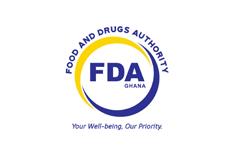
The Food and Drugs Authority Ghana (FDA Ghana) is the national regulatory body responsible for the regulation of food, drugs, food supplements, herbal and homoeopathic medicines, veterinary medicines, cosmetics, medical devices, household chemical substances, tobacco and tobacco products, blood and blood products as well as oversight on the conduct of clinical trials. The FDA Ghana’s mission is to ensure the safety, quality and efficacy of regulated products, and to control the conduct of clinical trials and use of tobacco products through the enforcement of relevant standards to protect public health. Therefore, the organisation’s vision is to protect the health and safety of people in Ghana and be a global Centre of Excellence for food and medical product regulation. www.fdaghana.gov.gh

GS1 is a neutral, not-for-profit standards organization that helps companies do business across the world. We create a common foundation for business by uniquely identifying, accurately capturing and automatically sharing vital information about products, locations and assets. Our expertise in standards building provides us with the knowledge to develop solutions that answer the needs of today’s healthcare regulations. Traceability in healthcare enables you to see the movement of prescription drugs or medical devices across the supply chain. You can trace backwards to identify the history of the transfers and locations of a product, from the point of manufacture onwards, and you can track forwards to see the intended route of the product towards the point of care. www.gs1kenya.org
The International Federation of Red Cross and Red Crescent Societies (IFRC) is the world’s largest humanitarian network, with 190 National Red Cross and Red Crescent Societies and around 17 million volunteers. IFRC works to strengthen and accompany National Societies, so that they may better address current and future challenges. We support coordination of the global Red Cross and Red Crescent network before, during and after disasters and crises. Together, we reach more than 160 million people with lifesaving and life-changing support annually. www.ifrc.org



The goal of Health and Social Development Division is to enhance the quality of life of people of the region towards longer life expectancy. The division is encompassing all the human development issues and upgrading the human capital in the IGAD region with focus on youth, children, women, and other vulnerable population. The mandate of the division is to coordinate, implement and oversee the regional health projects for vulnerable population. It also provides health and basic social services to the most needed population (cross border mobile population, refugee, returnees, IDPs, pastoralist population) in order to enhance development for the people of the IGAD region. The Health and Social Development Programme area is encompassing all the human development issues and upgrading the human capital in the IGAD region with focus on youth, children, women, and other vulnerable population. www.igad.int


Established in 1951, IOM is the leading intergovernmental organization in the field of migration and works closely with governmental, intergovernmental and nongovernmental partners. With 174 member states, a further 8 states holding observer status and offices in over 100 countries, IOM is dedicated to promoting humane and orderly migration for the benefit of all. It does so by providing services and advice to governments and migrants. IOM works to help ensure the orderly and humane management of migration to promote international cooperation on migration issues, to assist in the search for practical solutions to migration problems and to provide humanitarian assistance to migrants in need, including refugees and internally displaced people. The IOM Constitution recognizes the link between migration and economic, social and cultural development, as well as to the right of freedom of movement. www.iom.int
KAPI membership is made up of research based healthcare companies or their designate representative in Kenya. KAPI is an industry association established in late 1960’s with the objective of representing and promoting the interests of the Medical Devices and Pharmaceutical industry in Kenya. KAPI’s vision is to promote an ethical, innovative and responsible health care industry in Kenya with an overall goal of ensuring that medicinal products of the highest quality can be readily available for prevention and treatment of human and animal diseases. www.kapikenya.org

Kenya Healthcare Federation (KHF) is the Health Sector Board of the Kenya Private Sector Alliance (KEPSA). Founded in 2004, the Federation works with commercial healthcare institutions, professional associations and non-state healthcare firms to support quality and affordable healthcare for all through Public-Private Partnerships and is dedicated to engaging the government and all relevant stakeholders in achieving quality healthcare by maximizing the contribution of the Private Sector. In addition to influencing public policy, KHF also voices its support and concerns, and provides alternative solutions to issues facing the Health Sector. The membership of KHF comes from all the 6 building blocks of health systems as specified by the World Health Organization (WHO): 1. Human Resource for Health, 2. Health Financing, 3. Policy, Regulations and Quality Standards, 4. Supply Chain, 5. Partnerships, and 6. Digital Health. www.khf.co.ke


For more than 20 years, MSH has partnered with the Government of Kenya to strengthen health care systems. Currently, MSH in Kenya supports the Kenyan government, civil society organizations and local partners in developing their leadership, organizational and financial management capacity to provide a sustainable response to the health challenge. Additionally, MSH is strengthening access to pharmaceuticals and health commodities across the country while building the capacity of laboratory systems for the delivery of effective healthcare services. www.msh.org

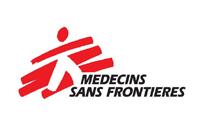
MSF (Médécins Sans Frontières) is an international, independent medical humanitarian organisation that provides medical assistance to people affected by conflict, epidemics, natural or man-made disasters, or exclusion from healthcare. Our teams are made up of tens of thousands of health professionals, logistic and administrative staff - most of them hired locally. Our actions are guided by medical ethics and the principles of impartiality, independence and neutrality. www.msf.org
The Nigeria Centre for Disease Control and Prevention (NCDC) is the national public health institute for Nigeria. It is a federal government agency under the Federal Ministry of Health (Nigeria), with its headquarters in Abuja, Federal Capital Territory. The agency’s goal is to protect Nigerians from the impact of communicable diseases by leading the coordination of public health preparedness, surveillance, laboratory, and response functions for all infectious diseases. The NCDC targets its activities towards the prevention and control of diseases of public health importance. This includes the preparedness, detection and response to public health emergencies, research, training and knowledge management, health promotion and other activities to protect the health of Nigerians. The NCDC serves as Nigeria’s International Health Regulations (IHR) National Focal Point and is a member of the International Association of National Public Health Institutes. www.ncdc.gov.ng
Africare was founded in 1970 as a leading non-governmental organization committed to addressing African development issues by working in partnership with African people to build sustainable, healthy and productive communities. After fifty years of existence, Africare announced a planned sunset of US operations and support the formation of an African led organization, PanAfricare, to continue its mission. Therefore, PanAfricare was established in July 2020 as an independent non-profit organization, with its Headquarters in Dakar, Senegal.
PanAfricare continues with Africare’s legacy of implementing programs with a commitment toward Improving lives and building futures on the African continent. The same Africare team in the continent continues the mission of PanAfricare. PanAfricare has a core expertise in community engagement, capacity building, locally-driven behavior changes and innovative public-private partnerships. By integrating our core expertise with our technical specialties of Health and Agriculture, PanAfricare’s projects leverage local resources for under-served communities to solve their own development challenges. www.panafricare.org

PATH is a global nonprofit dedicated to achieving health equity. With more than 40 years of experience forging multisector partnerships, and with expertise in science, economics, technology, advocacy, and dozens of other specialties, PATH develops and scales up innovative solutions to the world’s most pressing health challenges. PATH improves health in regions and communities experiencing disproportionate burdens of disease and barriers to well-being. That’s why the scope of our work is vast—it needs to be. To remove these barriers and burdens, our team works with global and local stakeholders to develop and scale up responsive, sustainable, human-centered health solutions. Learn more at: www.path.org. www.path.org

Pfizer, Inc., one of the world’s largest research-based pharmaceutical and biomedical companies, dedicated to discovering, developing, manufacturing, and marketing prescription medications for both humans and animals. Headquarters are in New York City. www.pfizer.com


Pharmaceutical Society of Kenya (PSK) is the umbrella pharmaceutical professional body in Kenya. Our goal is to advance the ethical practice of pharmacy and advocate for better pharmaceutical policies in the health sector. Our membership comprises of pharmacists, pharmaceutical scientists, pharmaceutical technologists and pharmacy academics. Our key stakeholders include government, health regulatory agencies, schools of pharmacy, and most importantly, our valued health seekers. www.psk.or.ke

The Federal Ministry of Health and Human Services aims to promote the health of all Somalis, contributing to the government’s goal of Universal Health Coverage and a healthy population. The Ministry of Health and Human Services FGS, in close coordination with Member States’ Ministries of Health, including Somaliland’s, and development partners, has achieved substantial progress in improving health systems and sustaining the implementation of the integrated EPHS. Despite the fact that the 2009 EPHS has led to significant advances in the delivery of health care across various regions and states, its implementation has been fraught with difficulties.
www.moh.gov.so/en/


The Ministry of Health is a government body set up with the mandate of stewardship and leadership of the health sector. The Ministry of Health is responsible for policy review and development, supervision of health sector activities, formulation and dialogue with health development partners, strategic planning, setting standards and quality assurance, resource mobilization, advising other Ministries, departments and agencies on health-related matters, and ensuring quality, health equity, and fairness in contribution towards the cost of health care. www.health.go.ug

UNICEF works in 190 countries and territories to protect the rights of every child. UNICEF has spent 70 years working to improve the lives of children and their families. Together with our partners, we work to translate that commitment into practical action, focusing special effort on reaching the most vulnerable and excluded children, to the benefit of all children, everywhere. The UNICEF Regional Office for Latin America and the Caribbean, guided by the SDGs and located in Panama City, coordinates and supervises the work of UNICEF in 36 countries and territories through 24 national country programs to promote the rights and well-being of all children and adolescents in the region. It also advocates to promote investment and public policies focused on children and adolescents, developing regional alliances to achieve the objectives defined in the Regional Operational Management Plan 2018-2021. www.unicef.org
UNOPS provides infrastructure, procurement and project management services for a sustainable world. Partners call on us to supplement their own capacities, improve speed, reduce risks, boost cost-effectiveness and increase quality. By combining the best of the United Nations and the private sector, we help build the foundations for countries to achieve peace and sustainable development. UNOPS in Kenya manages a growing portfolio of development activities providing project management, infrastructure, procurement, human resources and financial management services. From Nairobi, UNOPS provides a range of support to projects in 15 countries across Eastern and Southern Africa including Mozambique, Tanzania, Uganda, Zambia, Zimbabwe and more. Through partnerships with other UN agencies, governments and multilateral organizations, UNOPS is helping build a more sustainable future by supporting improved healthcare, education, climate-resilient infrastructure and recovery efforts across the region. www.unops.org

The United Nations Procurement Division (UNPD) aims at providing best value for money in the timely acquisition of goods and services to enable UN Secretariat entities deliver their mandates and achieve their objectives globally. UNPD’s clients range from peacekeeping and special political Missions, over Headquarters and Offices Away from Headquarters to Tribunals and other UN entities. Goods and Services include requirements in the Categories of Aviation, Transportation, www.un.org/Depts/ptd



Kenya has the largest, most diversified economy and the second largest population in East Africa. It also has a young, ambitious, and well-educated workforce eager to contribute to the development of the country. These factors have helped the country become a leader in mobile money and information and communication technology. As “the gateway to East Africa,” Kenya plays a vital role as a transportation hub for much of sub-Saharan Africa. As an important partner in East Africa, Kenya is a significant recipient of U.S. foreign assistance. For nearly 60 years, USAID has worked closely with the Kenyan government, Kenya’s private sector, and the Kenyan people to: Advance access to education; Improve quality healthcare through nutrition, family planning, and maternal and child health, malaria, tuberculosis, HIV/AIDS, and strengthening healthcare systems; Lay a foundation for long-term economic growth through trade, agriculture, and infrastructure initiatives; and Make devolution work for the benefit of all Kenyans through democracy, governance, and conflict interventions. www.usaid.gov/kenya
World Vision is a Christian, relief, advocacy and development organisation that is committed to improving the well-being of children, families and communities in Kenya. For over 40 years, we have served alongside the poor and oppressed in the country, as a demonstration of God’s unconditional love for all people. We partner with communities, the Government, sponsors, donors and corporates to help the most vulnerable children overcome poverty and enjoy life in all its fullness. With our advocacy work, we enable the voices of children and their communities to` reach decision makers, who have power to change unjust policies and practices. We implement sustainable development projects in education, health, child protection, food security, economic empowerment, as well as Water, Sanitation and Hygiene. World Vision has a vast reach in Kenya. Its transformative development initiatives are spread across 37 counties, nationwide. It serves all people regardless of religion, race, ethnicity or gender. www.wvi.org
The curation of professionals on the panels and the work from moderators was brilliant. Panel themes were highly pertinent. Matchmaking meetings - I am so grateful for them. You all did an amazing job organising and coordinating in putting this event together, thank you!









AD Ports Group Ahmed Okba Director Logistics - Healthcare & Life Sciences
Africa Health Business Patricia Kawuma Business development associate
Africa Healthcare Federation Dr. Amit N Thakker President
Amref Health Africa Dr. Catherine Kanari Universal Health Coverage Lead
Amref Health Africa Jackline Kiarie Regional Program Manager
Aquatabs Robert Cooper Commercial Director
Astral Aviation Limited Charles Simiyu Chief Commercial Officer
B. Braun Betty Nkonge Supply chain Specialist

Baillie Gifford Maria Souza Impact & Investment Analyst
BD Catherine Murithi MD, virologist Global Health Leader
BD Setota Keabetswe Ramoshebi Commercial Operations & Distributor Excellence Leader - Africa
“Centrale Humanitaire Medico-Pharmaceutique (CHMP - Kenya)” Nelly Kimani Quality Assurance Pharmacist
“Centrale Humanitaire Medico-Pharmaceutique (CHMP - Kenya)” Paul Lotay CEO
Chemonics International Madison Bradley PMU Sr. Associate
Chemonics International Gordon Brown Logistics Manager
“This was a great event taking place in the backdrop of the Covid-19 pandemic. We are glad we can have a physical meeting again”
Chemonics International Patrick Rardin Continual Improvement Analyst
Connexi Starling Lanhe Shan Senior Account Manager
Community Health and Information Network (CHAIN) Ziwa Hillington Strategist
CORENA Pharmaceutical Wholesaler Ege Aygun Key Account Manager
CORENA Pharmaceutical Wholesaler Secil Zeynep Dogan Key Account Manager

CORENA Pharmaceutical Wholesaler Nedim Ozgeldi Key Account Manager
Crown Agents Loise Kinyanjui Country Director - Kenya
DCD Protected Mobility Gerhard Bekker Mechanical Engineer
DCD Protected Mobility Gennadiy Romaniuk Sales & Marketing
DP World Berbera Khalid Fikree Project Development Manager
DP World Berbera Joseph Oguta Head of Berbera Economic Zone
DP World Berbera Francis Reys Chief Commercial Officer
EAC RCE-VIHSCM Dr. Stephen Karengera Director
Ethiopian Cargo & Logistics Services Bisrat G. Mariyam Head of Pharmaceuticals & Life Science Logistics
Etihad Cargo Morris Kungu munyinyi Country Manager Cargo
FedEx Express Ruth Kabogo Regional Sales Manager, Kenya
SAMUEL ASANTE BOATENG, GHANA FOOD AND DRUGS AUTHORITY “A very insightful meeting, hearing from logistics management institutions on their operations and where regulation can enhance their activities”
• 12-13 OCTOBER
UPPER HILL, NAIROBI, KENYA
FedEx Express Sylvia Kirwa Territory Manager, Kenya
FedEx Express Albert Mokaya Territory Manager
Food and Drugs Authority - Ghana Dr. Akua Amartey Deputy Chief Executive Officer, Technical Operations
Food and Drugs Authority - Ghana Samuel Asante-boateng Head Drugs and Herbal Medicines Registration Directorate
Freight-in-Time Vinesh Bhatti GROUP /KE COUNTRY MANAGER
FW Africa Elly Okutoyi Projects & Business Development Associate
Goodlife Pharmacy Ltd Sejal Shah Chief Pharmacist
GS1 Kenya Joseph Odipo Achieng Research and Data Manager
GS1 Kenya Eva Buyu Communications & Government Relations Manager
GS1 Kenya Nuran Idris Healthcare Manager, Africa
GS1 Kenya Paschal Kasimu Technical manager
GS1 Kenya Joseph Oloo Software engineer
GS1 Kenya Peter Otieno CEO
GS1 Kenya Stephen Owili Healthcare Standards Executive
HAE Group Kenya David Odori Cargo Customer Service
Hydrachem Limited Nicolas Barbieri Sales Director

“It is my first face-to-face PLA experience. Refreshing compared to virtual. Good networking opportunity, good experience for us”
IFRC - International Federation of Red Cross and Red Crescent Societies Petteri Lehti Logistician
IFRC - International Federation of Red Cross and Red Crescent Societies Carren Oyayo Senior Procurement Officer
IFRC - International Federation of Red Cross and Red Crescent Societies Rishi Ramrakha Head of Regional logistics unit, Africa
IGAD Health & Social Development Division Dr. Girum Hailu Maheteme Senior Advisor, IGAD Health and Social Development and Regional Coordinator for COVID Response
inSupply Health - JSI Genuine Desireh JSI Associate
inSupply Health - JSI Laura Nabwire Kenya Practice Lead
inSupply Health - JSI Phelisha Adhiambo Ojwaka Analyst

IOM - International Organization for Migration Edward Kufwafwa Pharmacy Assistant, Regional Vaccination Programme
KBR Services, LLC Alma Begic Seniour manager procurement and Materials
KBR Services, LLC Doug Hill Vice president Operations and support services
KBR Services, LLC Christopher Miller Capture Manager
Kenya Association of Pharmaceutical Industry (KAPI) Dr. Winnie Nganga Chairperson , KAPI . Regulatory Affairs Director GSK
Kenya Association of Pharmaceutical Industry (KAPI) Lilian Ngaruiya Secretariat
Kenya Healthcare Federation (KHF) Cynthia Chemonges Pathologist
Kenya Healthcare Federation (KHF) Vinod Guptan Board Director & Chairman-Supply Chain Committee
“Well organised, much collaboration”
Kenya Healthcare Federation (KHF) Sharon Kipkosgei Programs Assistant
Kenya Healthcare Federation (KHF) Grace Mutia Finance & Administration Officer
Kenya Healthcare Federation (KHF) Sylvia Mwelu P rograms Assistant
Kenya Healthcare Federation (KHF) Dr. Anastasia Nyalita CEO
Kenya Red Cross Scovia Lukera Liaison Officer
Management Sciences for Health Cecilia Muiva Principal Technical Advisor/TSL
Mariestopes Kenya Barbara Andisi Senior Procurement Officer
Marken Ludovico Grandi Europe, Middle East, Africa Network Manager
Marken Nadia Sissani vice president commercial operations
Medsource Group Ltd Spencer Ochieng Board Director
Mission for Essential Drugs & Supplies (MEDS) Eunice Ambiyo Deputy Project Director
Mission for Essential Drugs & Supplies (MEDS) Titus Munene m'maeti Ag. Project Director
Mission for Essential Drugs & Supplies (MEDS) George Munyi Inventory control Manager

Mitchell Cotts Group Edward Chirchir Business Development Manager
Mitchell Cotts Group Joy Ochuka Marketing & Communications Manager
MSF (Medicins Sans Frontieres) Paul Banks Procurement Manager
Nigeria Centre for Disease Control (NCDC) Chibuzo Eneh Deputy Director (Head Supply Chain)
Nigeria Centre for Disease Control (NCDC) Dr. Joseph Gbenga solomon Assistant Director
SERU MORRIES, UGANDA MINISTRY OF HEALTH
“The networking aspect was amazingly interesting”
Olicargo Antonio Neves Business Development Manager
PanAfricare Gorgui Diallo CEO
PanAfricare Dominic Godana Country Director
Partnership for Supply Chain Management Tassos Betzelos Logistics Specialist
Partnership for Supply Chain Management Fillip Dias Logistics Lead
PATH Helen Kamau Market Dynamics Officer
PATH Andolo Miheso TMICI Project lead-KENYA
PATH Carolyne Njuguna East Africa Hub Director & Kenya Country Director
PATH Elkanah Otiang Tenchnical AMR Advisor
Penda Health Ltd Dorcas Odondo Head of Procurement
Pfizer Laboratories Bridget Barnard Supply Chain Director
Pfizer Laboratories Andrew Maina Supply Chain Specialist
Pfizer Laboratories Noelyne Mumbi Demand Planner
Pharaon Healthcare Africa /Abbvie Anthony Nzau Country Lead-Kenya
Pharm Access Africa Limited Winfred Mueni Supply Chain Manager
PharmAccess Foundation Mac-Thompson Gbeti Brand Ambassador
Pharmaceutical Society of Kenya Dr. Lucas Kimanga Nyabero CEO
Pharmadex international George Kariithi Director

“It was a good opportunity to connect to relevant role players”
• 12-13 OCTOBER
UPPER HILL, NAIROBI, KENYA
Pluss + SAMRI Cedric Alaro Business Development -Kenya
Pluss + SAMRI Ankit Jhanwar Vice President- Growth and Strategy
Pluss + SAMRI Ganesh Kaveeshwar manager Growth and strategy
PNYX Ltd Benjamin Hardy Director
PNYX Ltd Ian Whitty Events Director
PNYX Ltd Elliott Kayser Operations Director
PNYX Ltd Noor Saghir Media & Communications Lead
Roche Kenya Limited Joshua Muriithi Ecosystem Enabler- East Africa
Rwanda Medical Supply Ltd. Celsa TMuzayire Gaju COO
Somalia Federal Ministry of Health & Human Services Mohamedamin Abdullahi Ahmed Head of Logistics supply chain management
• RADISSON BLU HOTEL NAIROBI
SpotSee / ShockWatch Peter Van buren General Manager Life Science EMEA & APAC

Strathmore University Maryann Maina Head of Public Sector and Digital programs
Strathmore University Mandela Nelson Onyinkwa BUSINESS DEVELOPMENT MANAGER Graduate and Doctoral programs
Thermo Fisher Scientific Henry Mbote Regional Account Manager, East Africa
Thermo Fisher Scientific Loise Munyambu Finance and Administration Manager
Tidiane Health Care Sedy Sy Diallo CEO
Tive Africa Tiaan Barnard Business Development, Africa
Tower Cold Chain Solutions Nosipho Ntshangase Business Development Manager - South Africa
Uganda Ministry of Health Seru Morries Acting Commissioner Pharmaceutical Services

UNICEF - UN Children’s Fund Dr. Olukayode Fasominu Senior Manager
UNPD - United Nations Procurement Division Tigabu Adane Ayele Procurement officer/ Team leader
UNPD - United Nations Procurement Division Muhammed (Riad) Islam Procurement Officer (Team Leader Healthcare Team)
USAID - Kenya Dr. Cheruiyot Bii PMS
USAID - Kenya Monica Dea Senior Supply Chain Advisor
USAID - Kenya Alex Kinoti Program management specialist
Villgro Africa Wambui Nyabero CTO
World Courier Mwendwa Mpuria Branch Manager
World Courier Ashton Woods Salea manager
World Vision Kenya Lilian Chebon Program Officer Health e
“Great conference, very relevant”




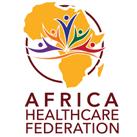

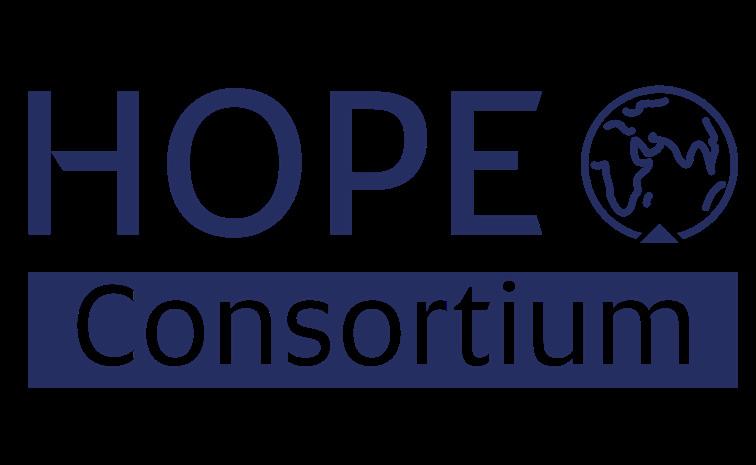 CHAIRED BY
SUPPORTED BY
CHAIRED BY
SUPPORTED BY



